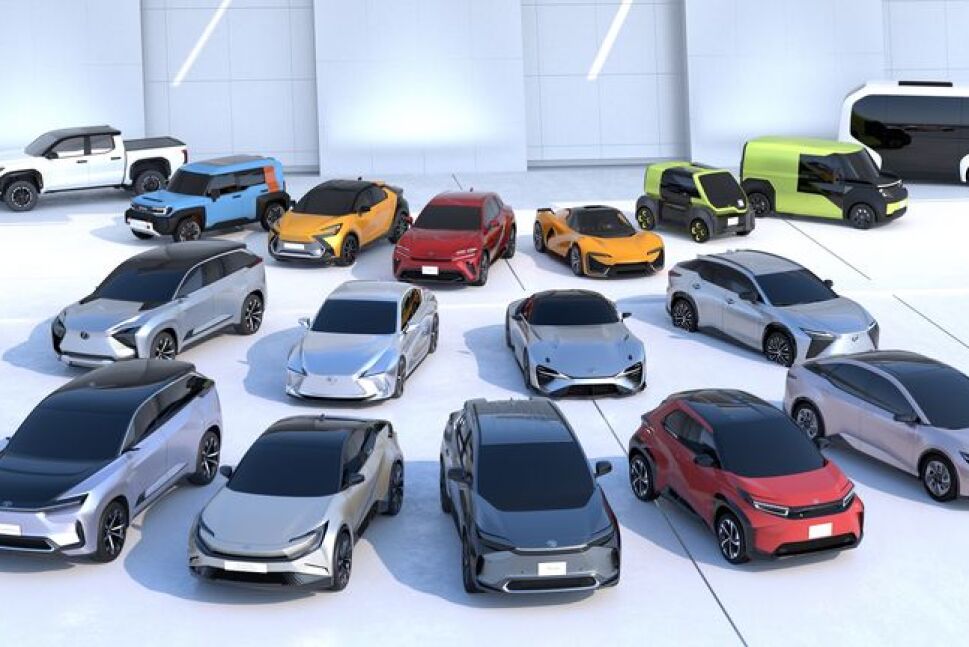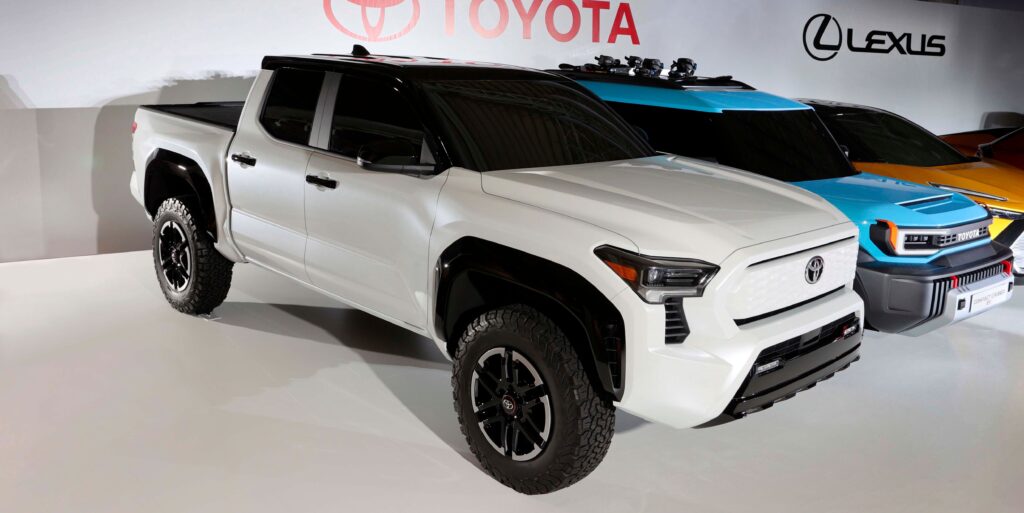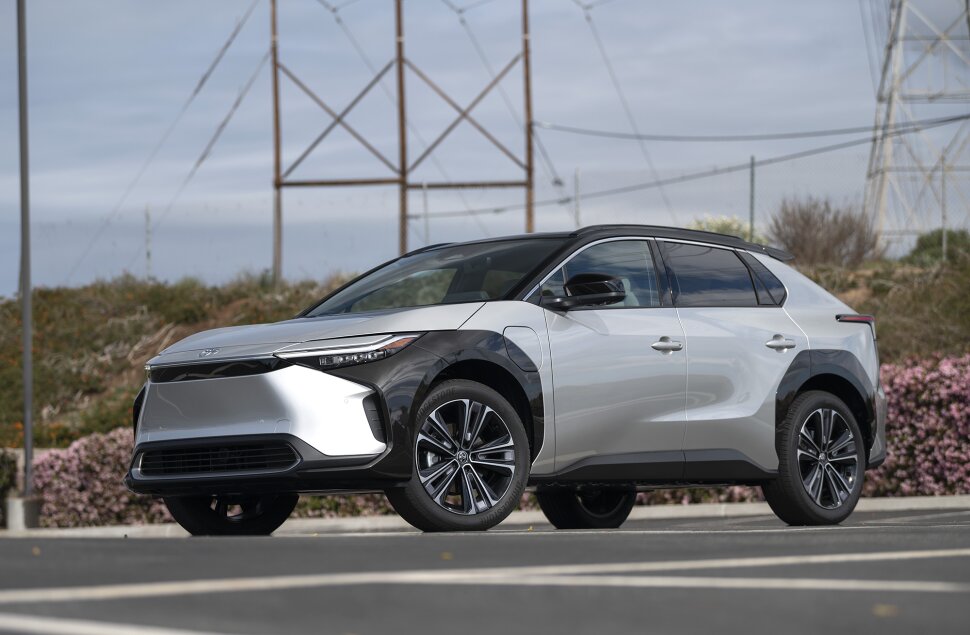Toyota Electric Vehicles:
Toyota has been slow to pivot to electric vehicles, preferring instead to concentrate on hybrids and fuel-cell vehicles. But now the global market is making clear that battery EVs are the future, and Toyota is lining up a viable battery EV supply chain.

The ocean liner that is Toyota Motor is slowly turning around, pivoting from a sustainability emphasis on hybrid and hydrogen fuel-cell vehicles to align with the global market in embracing battery-only electric cars.
That strategy first emerged last October, when Toyota acknowledged that it was considering a “reboot” of its $30 billion EV plan. The company then announced it was creating a working group that would report on whether it could improve its existing EV platforms, or come up with whole new architectures.
That report is due early next year and, in the meantime, Toyota put the development of some 30 EV projects on hold. Back in December of 2021, Toyota unveiled some 16 EV prototypes, including a pickup, the Compact Cruiser EV (a take on the FJ Cruiser, apparently), a Lexus-branded EV sports car, and more. But these were mostly just mockups, and further development on them awaits the new plan.

On Monday, Reuters reported that Toyota was planning – early next year – to communicate a new EV strategy to its suppliers. Some kind of supplier summit will take place this coming February. In a bland statement, Toyota said that it is “always actively discussing and working with key (suppliers and partners) on a variety of topics” to reach carbon neutrality.
Some automaker latecomers are now avidly pursuing electrification – Carlos Tavares, CEO of Stellantis (very slow to plug in under previous management) said it plans to introduce 75 electric models between now and 2030. Toyota’s announced plan is for 70 “electrified” models globally by 2025, but only 15 of those will be battery electrics.

Toyota introduced its first battery electric SUV with a tongue twister name, bZ4X. Its starting price is $42,000 with a range of up to 252 miles. The company announced, the Lexus RZ 450e, another EV crossover, early in 2023.
At the time of the bZ4X’s launch, the company told that “Toyota envisions a future in which carbon neutrality is achieved through a portfolio of products with advanced, alternative-fuel and zero-emission powertrain technologies.”
Going forward, that’s probably not good enough. Toyota will need battery electric entries across its broad product line, including competitive EV sedans and pickup trucks. A bold plan to get Americans hooked on hydrogen fuel-cell vehicles hasn’t worked. As EV sales accelerate in California – the biggest American electric vehicle market – Toyota is only selling a couple hundred Mirai fuel-cell vehicles there. The total for 2021 was 2,629. The Los Angeles area is the only part of the U.S. with a viable hydrogen network.
There has been talking of a battery version of the Crown sedan, but that’s another plan now on hold as Toyota pivots its strategy. The Crown, a large luxury sedan, has been off the American market since 1972, though it has gone through 15 iterations in Japan. Tellingly, Toyota has only talked about a plug-in hybrid version of the Crown for the U.S. Since delivering the Prius to the U.S. in 2004, Toyota has led the world in hybrid technology. But experts believe hybridization, including the plug-in hybrid version, is a transitional technology that becomes increasingly unnecessary as battery car range increases.
The signs are there that Toyota is realizing it has to be more aggressive in the EV space, and that it needs to ensure it has the platforms to be competitive across its product line.

